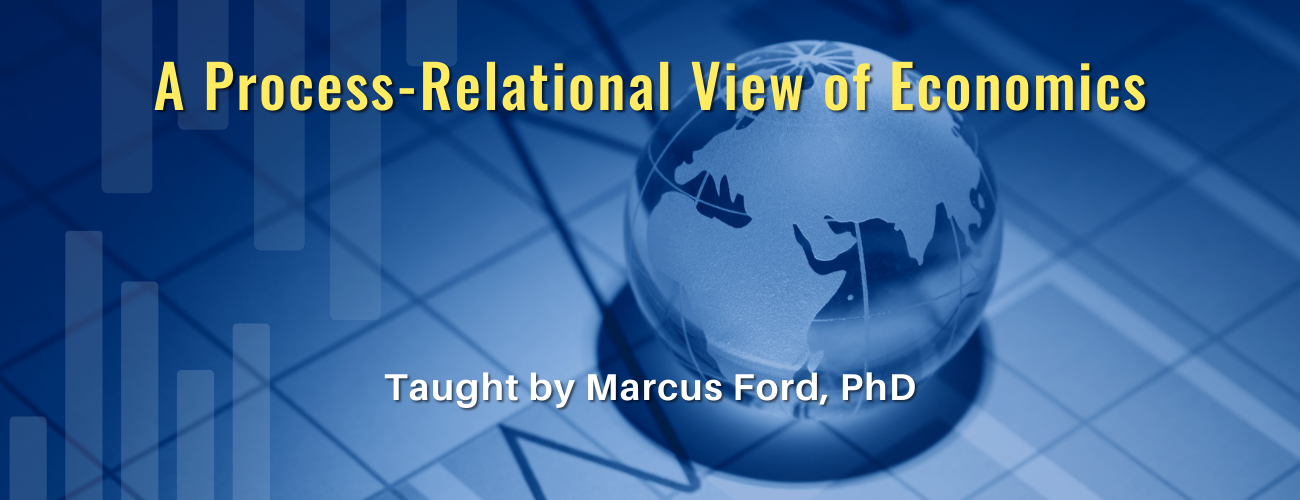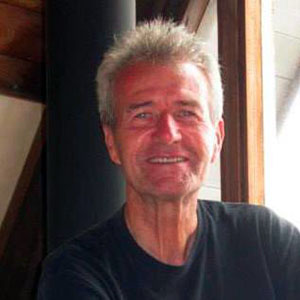This course was originally held in the spring of 2023, and was the fifth in a series of five that were part of our '22 - '23 certificate program. A limited number of seats were made available for participants who were not enrolled in the program.

Thinking About How We Think About Economics
This course provides an overview of modern economic theory and a process-relational critique of that theory. Topics will include the assumed need for economic expansion (“growthism”), globalization, localism, development without growth, and individuals-in-community.
Attend the live class sessions
or work at your own pace.
Course Description
In the modern world, economic systems are vitally important. They shape how we order our lives, our governments, our societies, and even our military decisions. Our economic commitments not only impact the ways in which we treat one another, but they also have an enormous influence on our interactions with the more-than-human world. Because it plays such a significant role in determining our relationship with other people and the planet, how we think about economics is extremely crucial.
Embedded in mainstream economic theory are certain metaphysical assumptions about the nature of reality as well as assumptions about how we should think about things. Many of these assumptions are, from a process-relational perspective, false or at best only partially correct. The goal of this course is to help us better understand both mainstream economic theory, how it arose and what it assumes, and the process-relational challenges to this theory. We will also consider the policy implications for nations, states, or communities to operate on the basis of a process-relational based economic theory.
“A realistic economy theory needs to take account of our normal sense of being parts of a larger whole whose welfare is important rather than treating us as self-enclosed individuals whose relations to others are primarily competitive.”
–John B. Cobb, Jr.
Course Outline
- Session 1: The Cultural Importance of Economic: How and why did economics became so important and what could take its place
- Session 2: Economics as an Academic Discipline and the Fallacy of Misplaced Concreteness
- Session 3: Development Without Growth
- Session 4: Localism and Globalism: Communities of Communities of Communities
About the Instructors

Marcus Ford was one of the first professors in the country to teach courses in sustainability and develop an environmental humanities program. Since early in his teaching career, Marcus has held that the most important thing we can learn is how to live sustainably and justly within the bounds of the natural world. He has taught sustainability studies at the undergraduate and graduate level and is an advocate for education that prepares people to actively participate in shaping their communities. He is the author of the groundbreaking book, Beyond the Modern University and many articles on higher education. Marcus is the Founder of Flagstaff College.
Share on Social Media
Help us spread the word by sharing the course on social media.
Tag us @CIC4Process.
Suggested Price
- Lifetime access to session recordings
- Receive early notification of future courses
- Watch live or follow your own schedule
- Interact with class members via discussion forums
- * Contribute whatever you feel the course is worth or whatever you can afford to help support this and other programs like it. No one is turned down for lack of funds.
Got questions? We've got answers. Contact Us.
